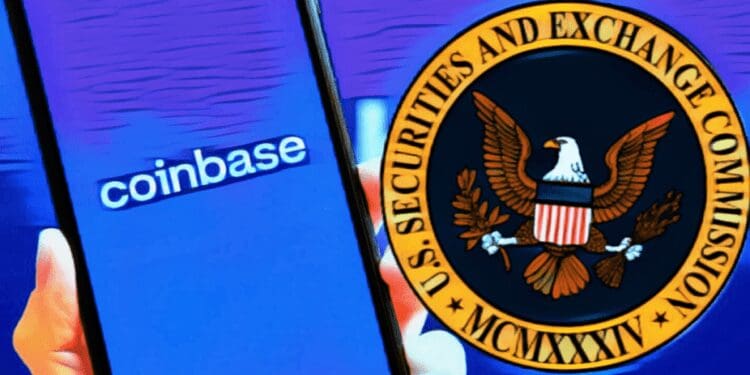Cryptocurrency exchange Coinbase is locked in a legal showdown with the U.S. Securities and Exchange Commission (SEC), challenging the regulatory body’s assertion that certain tokens qualify as securities. The dispute, which has been ongoing since June, has garnered significant attention in the cryptocurrency industry.
A Fierce Legal Duel
Coinbase recently presented its final arguments in the Southern District of New York, fervently contesting the SEC’s lawsuit against the exchange. The SEC had accused Coinbase of failing to register as an exchange, clearinghouse, and broker while offering these services to its customers. Additionally, the SEC raised concerns about Coinbase’s staking products.
The Coinbase Standpoint
In its defence, Coinbase has mounted a two-pronged argument. First, the exchange contends that the tokens traded on its platform do not qualify as securities under the criteria for “investment contracts.” Second, Coinbase argues that the SEC has overstepped its regulatory boundaries, invoking the Major Questions Doctrine, which sets limits on the authority of regulators.
Also Read: SEC Asks Coinbase To Suspend All Crypto Trading, Except Bitcoin
Coinbase’s Vision for the Future
Coinbase’s motion for the lawsuit to be dismissed represents a significant turning point in the case. However, experts suggest that obtaining a judgment on the pleadings can be an arduous task. The exchange is effectively asking the judge to rule on the case based on the facts presented in the SEC’s complaint.
Should Coinbase’s plea not be granted, the exchange is keen to proceed to trial without delay. Nevertheless, the discovery phase alone could span up to a year, potentially postponing the trial until at least the first quarter of 2025.
Judge Failla’s Familiarity with Crypto Cases
The case is under the jurisdiction of Judge Katherine Polk Failla, who has presided over several significant crypto-related matters in 2023. Her rulings have previously favoured cryptocurrency giants Uniswap and Ripple. In September, she delved into the workings of decentralized finance exchanges that utilize liquidity pools. Additionally, she stated that Ripple’s XRP is not inherently a security.

A Critical Component: Token Classification
At the heart of the SEC’s lawsuit is the classification of tokens traded on Coinbase. To prove that Coinbase failed to register with the SEC, the regulatory body must establish that certain cryptocurrencies indeed qualify as securities. The SEC leans on the Howey Test, asserting that some tokens are securities due to “the investment of money in a common enterprise with a reasonable expectation of profits derived from the efforts of others.”
Challenging The Howey Test
Coinbase’s rebuttal hinges on the contention that the SEC misinterprets decades of legal precedent. Notably, Coinbase points to a lack of contractual commitment between token sellers and buyers, a crucial element as per the Supreme Court’s interpretations.
Also Read: Ripple’s Victory Over US SEC Might Upgrade Howey Test For Crypto
The Major Questions Doctrine
Coinbase also invokes the Major Questions Doctrine, referencing a theory cited by the Supreme Court in a decision related to President Joe Biden’s student loan forgiveness plans. According to this theory, courts should assume that Congress does not delegate substantial questions of economic and political importance to executive agencies, including the SEC. Coinbase maintains that cryptocurrencies fall under this category, thereby challenging the SEC’s authority.
As the legal tussle unfolds, the cryptocurrency industry watches with bated breath, as the outcome could significantly impact the regulatory landscape for digital assets. While the decision is awaited, the implications of this case reverberate throughout the crypto world.
Disclaimer: This article is for informational purposes only and should not be considered legal advice. For specific legal matters, it is advisable to consult with qualified professionals. Always consult with qualified professionals for guidance.













Discussion about this post